A web page where you can understand the reason why super wealthy people are born and the need for taxes in one shot

There are people in the world who say, 'I'm just living on barely any income,' and there are super-rich individuals who own assets on a scale of the national budget. A web page that allows you to understand the mechanism in which such super wealthy people are born was published in one shot, so I tried to summarize the contents.
Why the super rich are inevitable
In order to intuitively understand how money moves in the world, we first prepare a situation where ``a coin toss game is played in a room with 100 people.''

Set everyone's money to $1000 and the wager to 20% of their money. Then everyone bets $200 on the first game.

In the first game, the person on the right won. The person on the left now has $800, and the person on the right has $1200.

In the second game, if the loser of the first game and the winner of the first game play against each other, the loser of the first game can only bet $160 (20% of $800), but the winner of the first game. Those who do can bet $240 (20% of $1200).

Under the above conditions, if a person who loses in the first game wins in the second game, his or her money will be $960. On the other hand, the person who won the first game has $ 1040 in possession despite losing in the second game, which is more than the initial possession. In other words, even in games where both sides have the same chance of winning, the one with more money continues to have an advantage.

The situation that ``the person with more money has an advantage'' becomes more pronounced as the number of games overlaps. The figure below shows the distribution of the money you have when you have played the above two games. At this point, the person with the least money has $ 640, and the person with the most has $ 1440.

And the money distribution when the game is repeated 10,000 times is as follows. Even though the win rate is always 50%, the minimum amount of money is $ 0 and the maximum amount is $ 77,428. If the winning rate is 50%, it seems that the participants' money will change equally, but in reality there will be an overwhelming difference. In this way, a mathematical model in which the difference widens even though the winning rate is the same is called the 'yard sale model'.
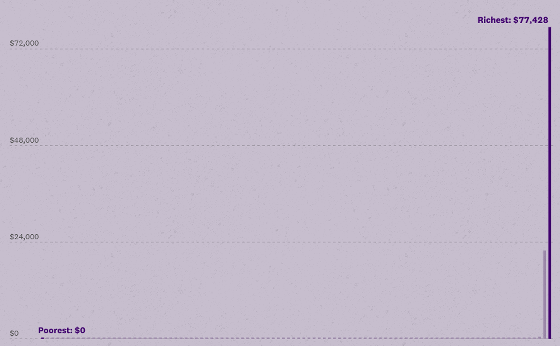
In the case of the above game, the amount of money held at the start was constant, but if there was a difference in the amount of money held at the start, the change in the amount of money held would be as follows. First, let's say that the person on the left has $ 100 and the person on the right has $ 1000, and the bet is set to '20% of the money held by the person on the left'.
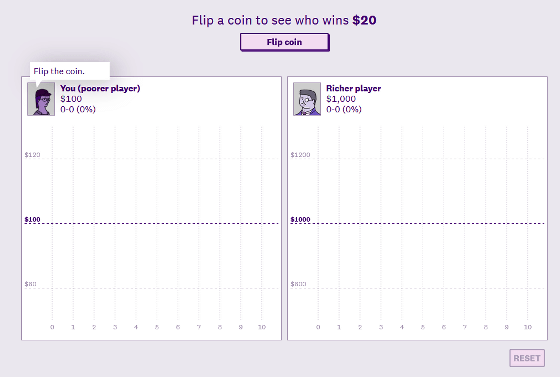
In the first game, the person on the left wins and wins $20. The second game wager is set at $24 (20% of $120).
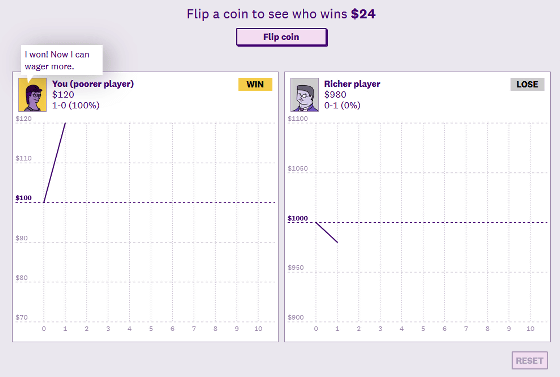
In Game 2, the person on the left lost and lost $24.
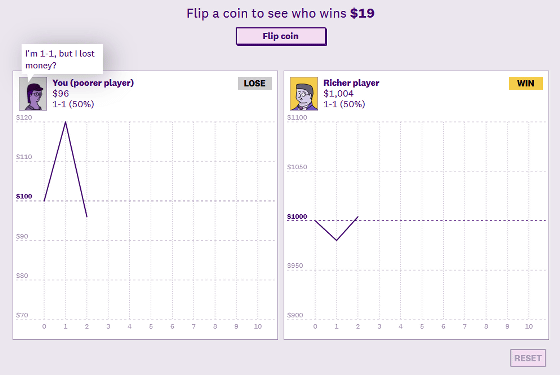
As a result of continuing the game, the person on the left wins in the third game and loses in the fourth game. At this point, the number of wins for both of them is two, but the money on the left is less than the initial state, and the money on the right is greater than the initial state.
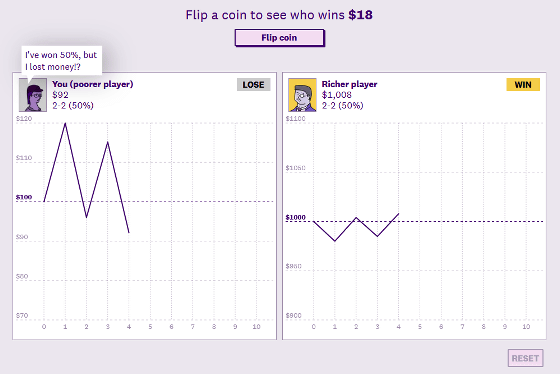
The result of repeating the game 64 times is as follows. Both have 32 wins and 32 losses, but you can see that the person on the left has less money.
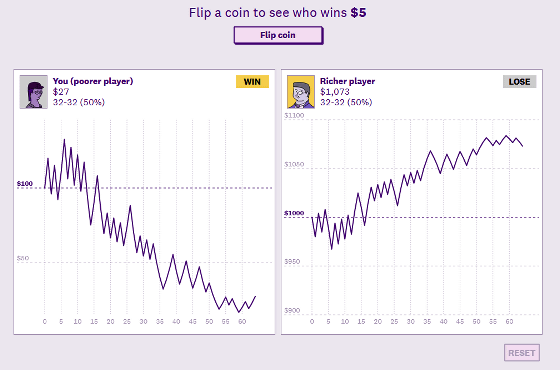
By introducing a redistribution mechanism that ``collects a certain percentage of money from everyone and distributes it evenly to everyone'', the above situation where ``the person with more money is advantageous'' can be alleviated. . The graph below shows the money distribution when executing a coin toss game 1000 times where everyone's money is 1000 dollars and puts out 20% as a bet. The yellow line is without redistribution, and the purple line is with redistribution. shows the distribution of Looking at the graph, you can see that the difference in money in possession is smaller with redistribution.
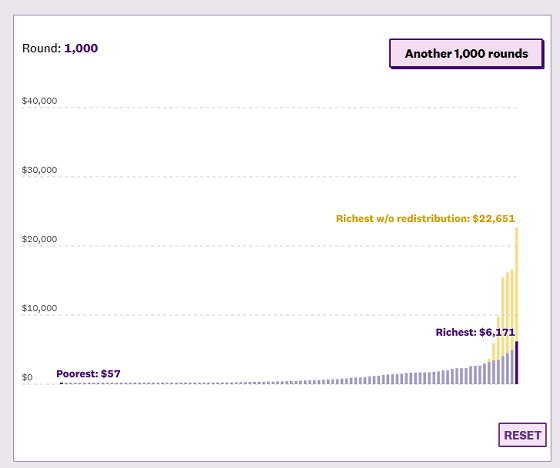
The result of repeating the game 2000 times is as follows. If there is no redistribution, the difference in money in possession is wider, but if there is redistribution, the expansion of the difference is suppressed. This redistribution is equivalent to the collection of taxes in society, and even if taxes are collected at a certain rate, the expansion of inequality can be suppressed.
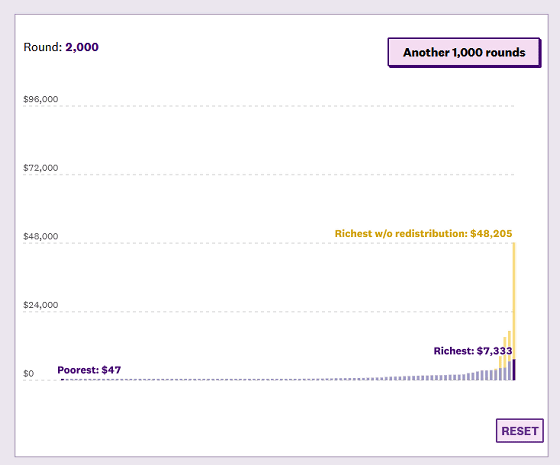
Related Posts:
in Web Service, Posted by log1o_hf







